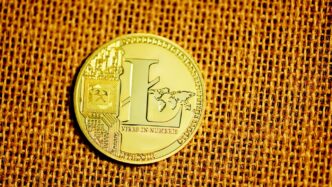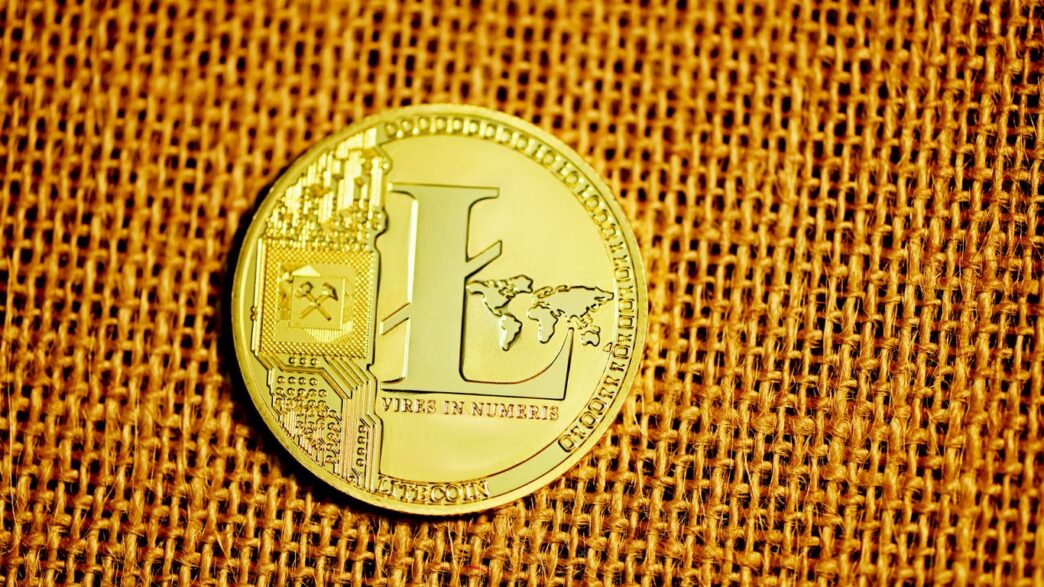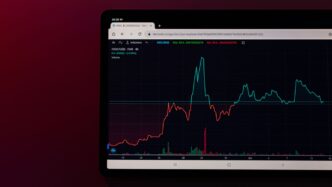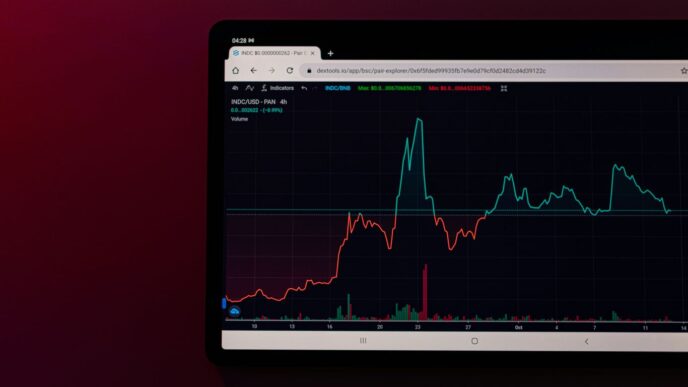Japan has always been a bit ahead of the curve when it comes to technology, and that includes the world of cryptocurrency. While they were early adopters, things have gotten a bit complicated. We’re going to look at what’s happening with crypto in Japan right now, from the rules they have in place to how companies and regular folks are getting involved. It’s a really interesting mix of old and new ideas, and it’s definitely worth checking out.
Key Takeaways
- Japan’s approach to cryptocurrency regulation is quite strict, aiming to protect investors but sometimes slowing down innovation.
- Many Japanese businesses are starting to see Bitcoin as a valuable asset, and the country is exploring broader blockchain uses, especially in gaming and NFTs.
- The weakening Japanese Yen is making Bitcoin look more attractive as a way to protect savings, drawing in more retail investors, particularly younger ones.
- Despite early adoption, challenges like high taxes and past security issues mean rebuilding public trust in cryptocurrency is still a work in progress.
- The future of cryptocurrency in Japan involves navigating these challenges, potentially with institutional backing and a focus on better financial education for everyone involved.
Understanding Japan’s Evolving Cryptocurrency Landscape
Japan’s relationship with cryptocurrency has been a bit of a rollercoaster, right? They were super early to the game, even recognizing Bitcoin as a form of payment back in 2017. But, you know, things haven’t always been smooth sailing. We’ve seen some pretty big exchange hacks, like Mt. Gox and Coincheck, which really made the government step in with some strict rules. It’s like they want to be pioneers, but also super careful at the same time.
The Pioneering Role of Japan in Crypto Regulation
So, Japan was one of the first countries to actually put rules in place for crypto exchanges. This was partly because of those big hacks I mentioned. The Financial Services Agency (FSA) is the main player here, and they’ve got a pretty tight grip. They require exchanges to get licenses and follow strict rules about who is who (KYC) and stopping money laundering (AML). It’s all about protecting people, which sounds good, but it can also make it a bit harder for new companies to get started. Japan’s Finance Minister has actually said he sees crypto as a way to diversify investments, which is a positive sign for startups looking to innovate in the space. Clearer regulations are definitely something people are watching.
Key Regulatory Frameworks and Their Impact
Let’s talk about those rules. The FSA’s approach is definitely cautious. On one hand, it helps keep things stable and protects investors. On the other hand, it can slow down growth. For example, Japan hasn’t approved spot Bitcoin ETFs yet, unlike some other countries. This is a big deal because ETFs could bring in more big money from institutions. It shows the government is still a bit hesitant to fully embrace crypto in the main financial system.
Navigating the Complexities of Crypto Taxation
Now, taxes. This is where things get a bit tricky for folks in Japan. Profits from crypto are often treated as ‘miscellaneous income.’ Depending on how much you earn overall, the tax rate could go up to a whopping 55%. Compare that to traditional investments like ETFs, which are usually taxed at a much lower capital gains rate of around 20%, and you can see why it might not be as appealing for some investors. It’s a significant hurdle when you’re trying to make crypto more accessible.
Here’s a quick look at how crypto taxes compare:
| Income Type | Tax Rate (Max) |
|---|---|
| Cryptocurrency Profit | 55% |
| ETF Gains | 20% |
This difference in tax treatment definitely impacts how people think about investing in digital assets compared to more traditional options.
Corporate Engagement and Blockchain Integration in Japan

It’s pretty interesting how Japanese companies are getting involved with Bitcoin and blockchain tech. Japan was an early adopter of crypto, and that pioneering spirit seems to be continuing, though with a bit of that classic Japanese caution. Many big names are looking at Bitcoin not just as a speculative asset, but as something more strategic, like a way to diversify their holdings. Think of it like a company deciding to buy gold, but in digital form. This move towards digital assets is a big deal for the traditional Japanese business world.
Japanese Corporations Embracing Bitcoin as a Strategic Asset
Some Japanese companies are really leaning into Bitcoin. Metaplanet, for example, a company based in Tokyo, actually doubled its Bitcoin holdings in 2024. They reported a pretty solid yield in the third quarter, showing that this isn’t just a small experiment for them. With over a thousand Bitcoin in their portfolio, they’re treating it like a serious part of their financial strategy. This kind of move by a publicly traded company can really influence others to consider similar steps. It’s a clear signal that Bitcoin is being viewed as more than just a digital currency; it’s becoming a recognized asset class. This is a significant shift from how many companies viewed digital assets just a few years ago. It’s like they’re building a digital treasury.
Synergies Between Bitcoin and Broader Blockchain Adoption
It’s not just about Bitcoin itself, though. Companies are also digging into the underlying blockchain technology. This tech can do a lot more than just support Bitcoin. We’re seeing financial institutions looking at blockchain for making payments faster and more secure. Then there are the gaming companies, which are a huge part of Japan’s culture, exploring how to use Bitcoin for in-game purchases or rewards. This integration shows how Bitcoin and blockchain can work together to create new business models and improve existing ones. It’s about finding those connections, those places where the technology can actually make a difference in how businesses operate day-to-day. It’s a bit like how Virgin Galactic is using new spaceship designs to make space travel more accessible VSS Unity.
The Role of Gaming and NFT Projects in Corporate Strategy
Speaking of gaming, it’s a massive area for blockchain and crypto in Japan. Companies are realizing that non-fungible tokens (NFTs) and crypto payments can really boost engagement with players. Imagine getting unique digital items in a game that you truly own, or being able to easily trade them. That’s the kind of thing that gets players excited. Some companies are even looking at how to incorporate Bitcoin for microtransactions, making small payments within games super simple. This isn’t just about adding a new feature; it’s about rethinking how players interact with games and how value is exchanged within these digital worlds. It’s a smart way to tap into a younger, tech-savvy audience that’s already comfortable with digital ownership and transactions.
Market Dynamics and Investor Behavior in Japan
Japan’s crypto market is a fascinating mix of old and new. While the country was an early adopter of digital assets, its approach has evolved, shaped by both global trends and unique domestic factors. It’s not just about Bitcoin anymore; the whole digital asset space is seeing shifts in how people invest and what they’re looking for.
Bitcoin as a Hedge Against Yen Depreciation
Lately, the Japanese yen hasn’t been performing too well against other major currencies. This has made Bitcoin look more attractive to some Japanese investors. Think of it like this: when your local currency is losing value, you might look for something that holds its worth better, and Bitcoin has started to fill that role for some. We saw Bitcoin hit record highs against the yen back in February 2024, partly because people were worried about inflation and the yen’s stability. It’s a clear sign that macroeconomic conditions can really influence how people view digital assets. This trend shows how Bitcoin can be seen as a safe haven, similar to gold, especially when traditional currency markets are shaky. It’s a big change from just seeing it as a speculative bet.
Shifting Retail Investor Sentiment Towards Digital Assets
There’s definitely a growing interest in digital assets among everyday investors in Japan. A survey from May 2023 indicated that around 3.8 million people, or about 5% of Japan’s adult population, had invested in crypto within the last six months. What’s interesting is the younger demographic, those aged 18 to 30. A good chunk of them, 39%, have put more than ¥10,000 into cryptos. Plus, nearly half of these young investors are trading multiple times a week. This suggests a real engagement with the market, not just a casual look. They’re also using crypto to diversify their portfolios, which is a smart move. It’s not just about Bitcoin and Ethereum anymore either; there’s a lot of interest in NFTs, the metaverse, and other areas of the digital asset world. This diversification shows a maturing investor base that’s looking beyond the big names. It’s a far cry from the early days when crypto was seen as a niche, risky venture. Now, it’s becoming a more accepted part of a balanced investment strategy, especially for those who are comfortable with technology. This shift is also happening despite the country’s strict regulations and tax policies, which can be a bit of a hurdle. For instance, crypto profits are taxed as miscellaneous income, which can go up to 55% for higher earners, making it less appealing than traditional investments taxed at around 20%. This is a significant difference that could affect how many people get involved. The lack of spot Bitcoin ETFs in Japan, unlike in the US, also means fewer options for mainstream investors to get exposure, which is a missed opportunity for broader adoption. Understanding these regulatory challenges is key for anyone looking at the Japanese market.
Generational Differences in Crypto Investment Habits
When we look at who’s investing in crypto in Japan, there are some clear generational differences. The younger crowd, as mentioned, is very active, trading frequently and diversifying their holdings. They’re comfortable with the technology and see digital assets as a way to build wealth. On the other hand, older generations might be more hesitant. Historically, Japanese investors have leaned towards safer assets like bonds and real estate. While some are starting to see Bitcoin as a digital store of value, it’s a slower shift for them. This is partly due to cultural factors and a general preference for tangible assets. However, as digital finance becomes more integrated into daily life, and as younger generations share their experiences, this perception could change over time. It’s a slow but steady evolution in how different age groups approach investing in new technologies.
Challenges and Opportunities for Cryptocurrency Growth
Japan’s journey with digital assets has been a bit of a rollercoaster, right? Despite being an early adopter, the country has faced some significant hurdles. Rebuilding public trust after major exchange hacks like Mt. Gox remains a key challenge. But it’s not all doom and gloom; there are some pretty interesting opportunities on the horizon too.
Addressing Regulatory Barriers and Public Trust
Let’s be real, the regulatory environment in Japan, while aiming for safety, can sometimes feel a bit restrictive. High tax rates and strict oversight have made some folks hesitant to jump in, both individuals and bigger companies. It’s a tough balancing act – you want to protect people, but you also don’t want to stifle innovation. The memory of those big hacks, like the Mt. Gox incident back in 2014, still lingers, making people a bit wary. It’s going to take time and consistent, transparent action to really get everyone feeling secure about crypto again. Think of it like trying to convince someone to try a new restaurant after they had a bad experience there years ago; you need to show them things have really changed.
The Potential of Institutional Adoption and ETFs
On the flip side, there’s a lot of buzz around institutional players getting more involved. As Bitcoin and other digital assets gain more global acceptance, Japanese financial institutions are starting to look at things like offering crypto custody services or creating investment products. This could be a game-changer. Imagine if your regular bank started offering ways to invest in crypto – it would make it feel a lot more mainstream. The introduction of Exchange Traded Funds (ETFs) in other markets has already shown how they can open the door for more cautious investors. If Japan follows suit, it could really broaden the base of people participating in the crypto market. It’s a bit like how online shopping made it easier for everyone to buy things, not just those who could go to a physical store. We’re seeing a lot of interest in new tech, like the recently announced iPager, which shows a general openness to innovation.
Enhancing Financial Literacy for Informed Participation
Another big piece of the puzzle is making sure people actually understand what they’re getting into. A lot of the hesitation comes from not knowing enough. We need more straightforward education about how cryptocurrencies work, the risks involved, and how to stay safe. This isn’t just about teaching people to trade; it’s about building a solid foundation of knowledge. Think about how people learn about stocks or bonds – there are resources available. We need something similar for crypto. This could involve workshops, better online resources, and even clearer explanations from exchanges themselves. The goal is to move from speculative excitement to informed investment decisions. It’s about giving people the tools to make smart choices for themselves, rather than just following the crowd.
The Future of Digital Assets in Japan
Japan’s journey with digital assets is really picking up steam. It’s not just about Bitcoin anymore; the whole landscape is broadening. We’re seeing a lot of interest in new areas, and the government seems to be getting more on board with Web3, which is a big deal. It feels like the country is trying to figure out how to make this work for everyone, from big companies to regular folks.
Emerging Trends in Japanese Crypto Investment
It’s pretty clear that Japanese investors are looking beyond just Bitcoin and Ethereum. While those are still popular, there’s a definite move towards diversifying. Think NFTs, the metaverse, and even meme coins are getting attention. It’s interesting because a few years ago, this wasn’t really on the radar for most people. Now, it’s becoming more common to see people putting money into a mix of different digital assets. This shift suggests a growing maturity in the market, where investors are more willing to explore different parts of the crypto world. It’s a sign that the market here is becoming more sophisticated, and people are looking for different ways to grow their wealth.
The Influence of Social Media on Investor Education
Social media plays a huge role these days in how people learn about crypto. Platforms like X (formerly Twitter) and YouTube are where a lot of Japanese investors get their information. It’s a double-edged sword, though. You can find some really good insights and learn about new projects, but there’s also a lot of noise and sometimes, outright misinformation. The challenge is figuring out what’s reliable. Many younger investors, especially, are getting their first taste of crypto through these channels. It’s making education more accessible, but it also means people need to be extra careful about the sources they trust. It’s a bit like trying to find a good restaurant in a new city – you need to do your homework.
Japan’s Vision for a Robust Crypto Ecosystem
Japan’s government, particularly through initiatives like the Web3 Policy Office, is aiming to create a more supportive environment for digital assets. They’re looking at ways to simplify rules, especially for listing new digital currencies on exchanges. There’s also talk about making it easier for venture capital firms to invest directly in digital assets. The goal seems to be building a system that’s both innovative and safe for investors. They want to attract more businesses and talent to the Web3 space, making Japan a hub for this kind of technology. It’s a big undertaking, but the direction seems positive, aiming for a future where digital assets are a more integrated part of the economy. This move could really help with financial inclusion, similar to how platforms like M-Pesa have helped people in other regions access financial services.
Looking Ahead: Japan’s Crypto Journey
So, where does all this leave Japan in the crypto world? It’s a bit of a mixed bag, really. On one hand, Japan was an early player, and there’s definitely a lot of tech-savvy people interested in digital assets, especially the younger crowd. Plus, big companies are starting to see the value, and the yen’s ups and downs are making Bitcoin look more attractive as a safe bet. But, there are still some big hurdles. The rules can be pretty strict, and the taxes are no joke, which can make things tough for both regular folks and big businesses wanting to get involved. Rebuilding trust after past issues is also a work in progress. Still, with ongoing innovation and a government that’s starting to pay more attention to Web3, the future could hold more opportunities. It seems like finding that sweet spot between keeping things safe for investors and letting new ideas grow will be the key to Japan really making its mark in the crypto space.
Frequently Asked Questions
What are the main rules for crypto in Japan?
Japan has specific rules for crypto. The government watches crypto exchanges closely to keep people safe and prevent bad stuff like money laundering. They also have rules about how crypto is advertised and traded.
How are Japanese companies using crypto?
Some big companies in Japan are starting to use Bitcoin as a way to invest their money. Others are using blockchain, the technology behind crypto, to make their businesses better, like in games or tracking products.
Why are people in Japan investing in Bitcoin?
Many people in Japan are investing in Bitcoin because the value of their own money, the Yen, has been going down. They see Bitcoin as a way to protect their savings from this drop and as a way to potentially make more money.
Is it hard to pay taxes on crypto in Japan?
Yes, paying taxes on crypto profits in Japan can be tricky. Depending on how much you earn, the tax rate can be quite high, which can make people think twice about trading a lot.
What are the biggest challenges for crypto in Japan?
Some of the biggest challenges are the strict rules, the high taxes on profits, and making sure people trust crypto after some past problems with exchanges. It’s also important to teach people more about how crypto works so they can make smart choices.
What does the future look like for crypto in Japan?
The future looks interesting! More companies might start using crypto and blockchain. People are learning about it through social media, and Japan wants to build a strong and fair system for digital money that includes everyone.












